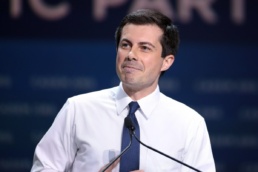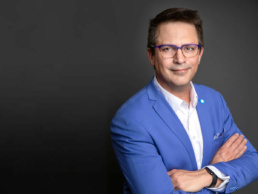Trust– it seems to be in pretty short supply these days, nowhere more so than in the realm of media, where “fake news” has been said with malice, as a distraction and as useful misinformation for almost 10 years.
Is there an opportunity for journalists and communications professionals to work together to build trust with their audiences? Or is that relationship inevitably adversarial or at cross purposes?
We brought together a group of veteran communicators, both “hacks” and “flacks,” to share perspectives and insights, experiences and views on best practices. As moderator, I’ve worked on both sides of the journalist/corporate communications divide and we invited some rock stars– former CBC national host and reporter Wendy Mesley, the Toronto Star’s Queen’s Park correspondent Rob Ferguson, former journalist and current senior PMO communications advisor Ben Chin and George Brown College’s Associate Vice-President for Communications and Marketing Sumi Shanmuganathan– to reflect on what works, what doesn’t and in the current context, whether there’s a win-win to be found.
If you didn’t get a chance to join the discussion live, you can watch the recording here.
As you’ll see in the video, I think the first point of agreement is that the world of media and communications is in a difficult place– uncertainty and pessimism about career prospects as business models crumble and budgets are dramatically cut back. The Edelman trust index suggests that most people don’t trust the media, governments, or anybody and anything. And the echo-chambering internet continues to fester, platforming the bad guys.
Our journalism panelists noted that “media relations” is really about media relationships. The news business has always been a people business; good old-fashioned shoe-leather reporting requires conversations with people: witnesses to events, experts in their particular fields, politicians, organizational spokespeople. Everyone recognizes that everyone else has a stake in those conversations, sometimes with a lot at stake. There are incentives to dissemble, obfuscate, misdirect. And lie. In these sorts of relationships, trust is hard-won and easily lost. Your reputation is your professional calling card. People have long memories. Burn a source, burn a reporter, and you may never get another phone call or email returned. And that can be a career-ender.
“Media relations” is really about media relationships… In these sorts of relationships, trust is hard-won and easily lost.
Reporters want all the information, all the time. Media relations people need to manage the information flow for all sorts of reasons: competitive or regulatory confidentiality, marketing and brand coherence and consistency, political advantage, crisis management. Both sides generally understand this and can work with one another respectfully, understanding that neither side will always get what it wants (and will often face an unhappy editor or boss/client as a result). But with mutual trust and respect, there can be important advantages to building long term relationships. For a company or institution, candid conversations can help reporters better understand how complicated organizations work, how their particular issues fit into larger scenarios. Beat reporters succeed because they have cultivated a wide range of knowledgeable contacts who can help them understand trends and act as early warning tipsters for emerging issues. In such a delicate information ecosystem, all the players can achieve their objectives, if not every day, then over the long term. Non-trustworthy reporters and spinmeisters eventually get weeded out, sidelined and/or ignored as their value to their respective organizations– their believability— dwindles.
From our journalists’ perspective, best practices include things like availability (24/7 of course!), the ability to react in real time to changing events, the authority to speak on behalf of an organization or client– or to connect them with someone who can– and perhaps most importantly, a willingness to step up when the going gets tough. And that’s actually not too far off of what our comms pros think, too. The challenge for them is often convincing their principals/clients that the hard way can sometimes be the best way.
I think where we landed, after a lively hour of shared perspectives and experiences, is that a reasonable accommodation between hacks and flacks can be reached if trust is established and maintained. Both sides understand (if not always happily accept) that their counterparts have professional obligations. And both sides understand that trust and authenticity (to paraphrase our late colleague James Bullbrook) are the coins of the realm, without which you’re not bringing much value to the table.
Check out our full conversation to get inspired and fuel your own creativity.
Thank you again to our incredible panelists: Ben Chin, Rob Ferguson, Wendy Mesley, and Sumi Shanmuganathan.
Does your organization need media training or crisis management? Contact us today.
Jeff Keay
Executive Consultant and Strategic Leadership and Media Consultant for Curious Public. Jeff is one of Canada’s leading media relations, communications and issues management professionals.


